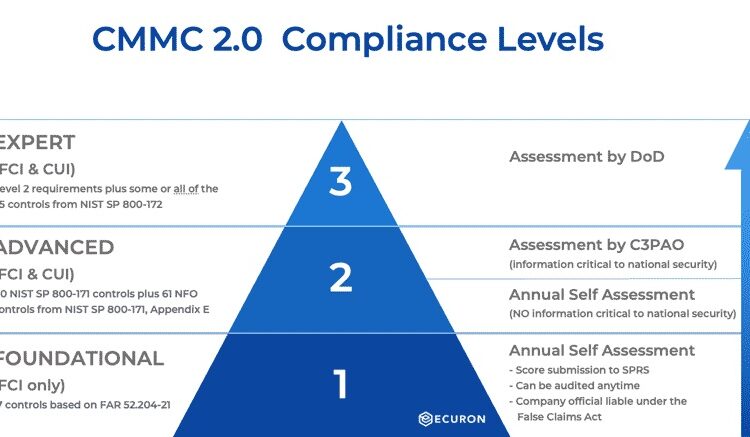
Businesses don’t plan to fall behind on cybersecurity, but falling short of CMMC compliance requirements can have serious consequences—especially for those working with federal contracts. It’s not just about boxes left unchecked; it’s about what those unchecked boxes might cost. Failing to meet CMMC Level 2 requirements isn’t just risky—it’s expensive, disruptive, and reputation-altering.
Losing Lucrative Defense Contracts Overnight
Missing the mark on CMMC Level 2 requirements can mean getting cut off from Department of Defense contracts—sometimes with little warning. Companies that once relied on those agreements for steady revenue may find themselves suddenly disqualified. The government doesn’t wait around for organizations to catch up on cybersecurity standards, especially when Controlled Unclassified Information (CUI) is involved.
Contract loss doesn’t just impact bottom lines—it can shake up entire business models. For smaller contractors or specialized subcontractors, losing eligibility for DoD contracts due to failed CMMC assessments could mean laying off staff, halting projects, or shutting down divisions. Many don’t realize how quickly the consequences come once non-compliance is discovered.
Costly Cyber Breaches Due to Compliance Shortcuts
Skipping steps in cybersecurity protocol can create open doors for cyber attackers. Companies that delay their CMMC assessment or underestimate CMMC compliance requirements riskexposing sensitive data to breaches. CMMC Level 2 requirements are built specifically to protect CUI, and ignoring them makes organizations vulnerable to targeted attacks.
A single breach can cause more damage than just the stolen data. Downtime, forensic investigations, legal fallout, and recovery efforts often cost far more than achieving compliance would have in the first place. Many breaches can be traced back to weak points that the CMMC framework is designed to prevent—basic access controls, multi-factor authentication, system monitoring, and data protection. Choosing to shortcut those safeguards is like leaving the door unlocked in a high-crime neighborhood.
Increased Audits and Scrutiny from Federal Agencies
Once a company shows signs of failing to meet CMMC Level 2 requirements, it invites additional attention from oversight bodies. Federal agencies and contracting officers tend to zero in on organizations that appear careless with cybersecurity protocols. Failing an audit or providing outdated documentation during a CMMC assessment can prompt frequent re-checks, site visits, and compliance reviews.
More scrutiny also slows down workflows. Internal teams are pulled from projects to gather records, update policies, and respond to audit requests. In some cases, government contracts are suspended until CMMC compliance requirements are met, delaying payments and timelines. Instead of focusing on delivering value to clients, leadership is stuck managing audits and answering questions that could’ve been avoided with proper preparation.
Damage to Business Reputation and Credibility
Word spreads fast in defense and aerospace circles. Once a company is flagged for non-compliance, trust starts to erode—not just with federal clients, but with industry peers and subcontractors as well. The perception of being careless with data security can cause clients to hesitate, partners to back out, and competitors to capitalize on the opening.
It doesn’t take a headline-making data breach to damage credibility. Something as simple as failing a CMMC assessment or being removed from a contract bid list is enough to send the wrong signal. Companies work hard to build a reputation in sensitive industries—yet overlooking CMMC Level 2 requirements can unravel that work quickly. Trust is hard-won and easily lost when cybersecurity lapses come to light.
Steep Financial Penalties for Cybersecurity Negligence
The price of non-compliance goes beyond lost contracts. In some cases, companies face fines or repayment obligations if they misrepresent their compliance status. Federal False Claims Act violations are real threats when organizations bid on contracts while knowingly falling short of CMMC requirements.
Additionally, the cost of playing catch-up after a failed CMMC assessment is often higher than preparing properly from the start. Emergency upgrades, consulting services, employee training, and legal costs can stack up quickly. Unlike voluntary certifications, CMMC Level 2 requirements aren’t optional for defense contractors handling CUI. Not meeting them can trigger a chain reaction of expenses that disrupt even the most financially stable firms.
Reduced Competitive Edge in Sensitive Industry Markets
Defense contracting isn’t the only space where CMMC compliance matters. As the government pushes stricter cybersecurity standards across industries, being non-compliant limits access to partnerships and projects. More organizations are beginning to require CMMC Level 1 or Level 2 alignment—even outside of federal work—just to keep data safe and operations secure.
Businesses that fall behind on cybersecurity standards risk being left out of future opportunities. Competitors who meet or exceed CMMC requirements gain a stronger position when bidding for contracts, proposing joint ventures, or expanding into new markets. Not having up-to-date compliance isn’t just a technical gap—it’s a strategic disadvantage that affects long-term growth. Staying ahead of CMMC compliance requirements is becoming less about avoiding penalties and more about staying relevant in a changing cybersecurity landscape.








